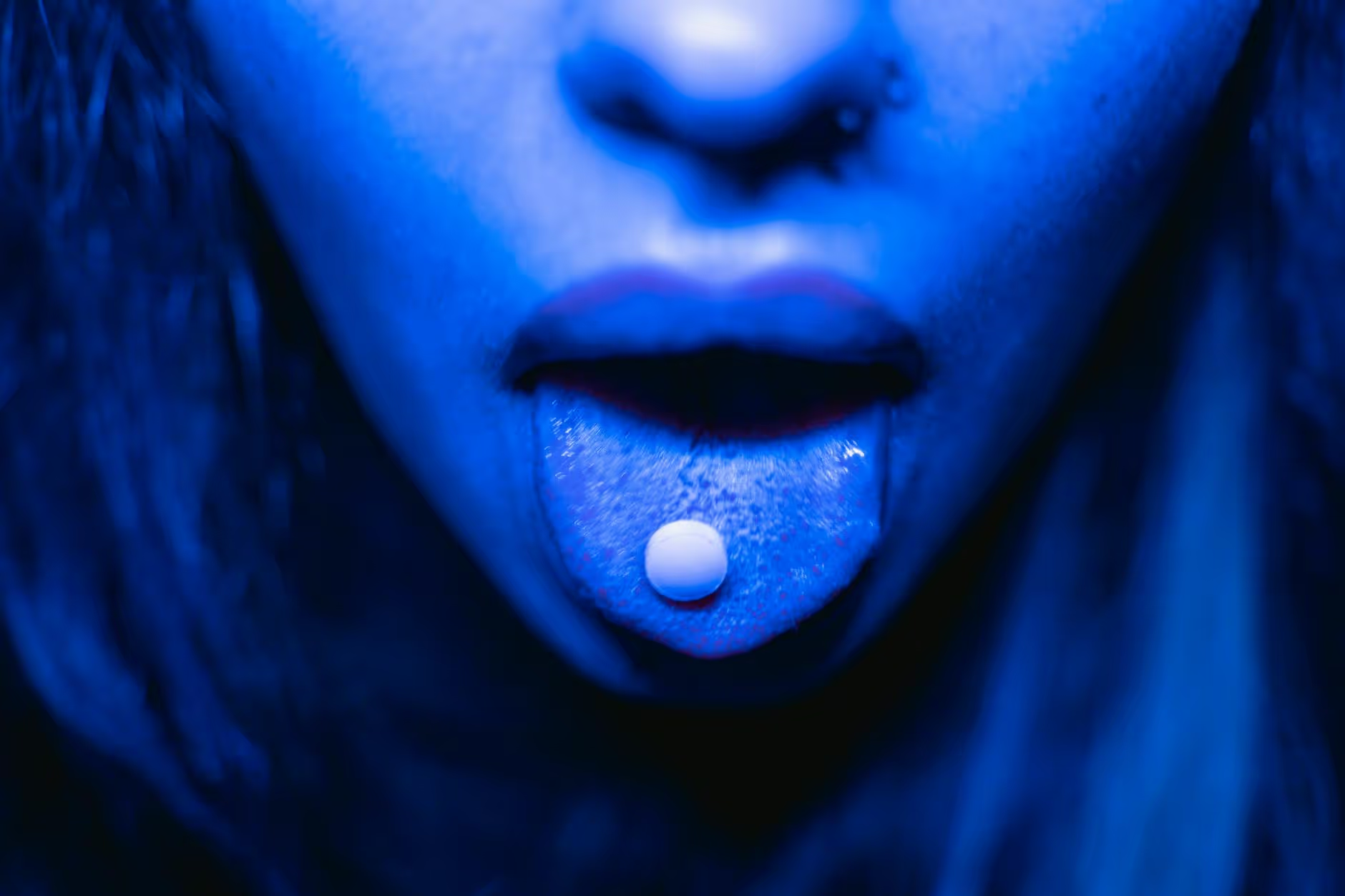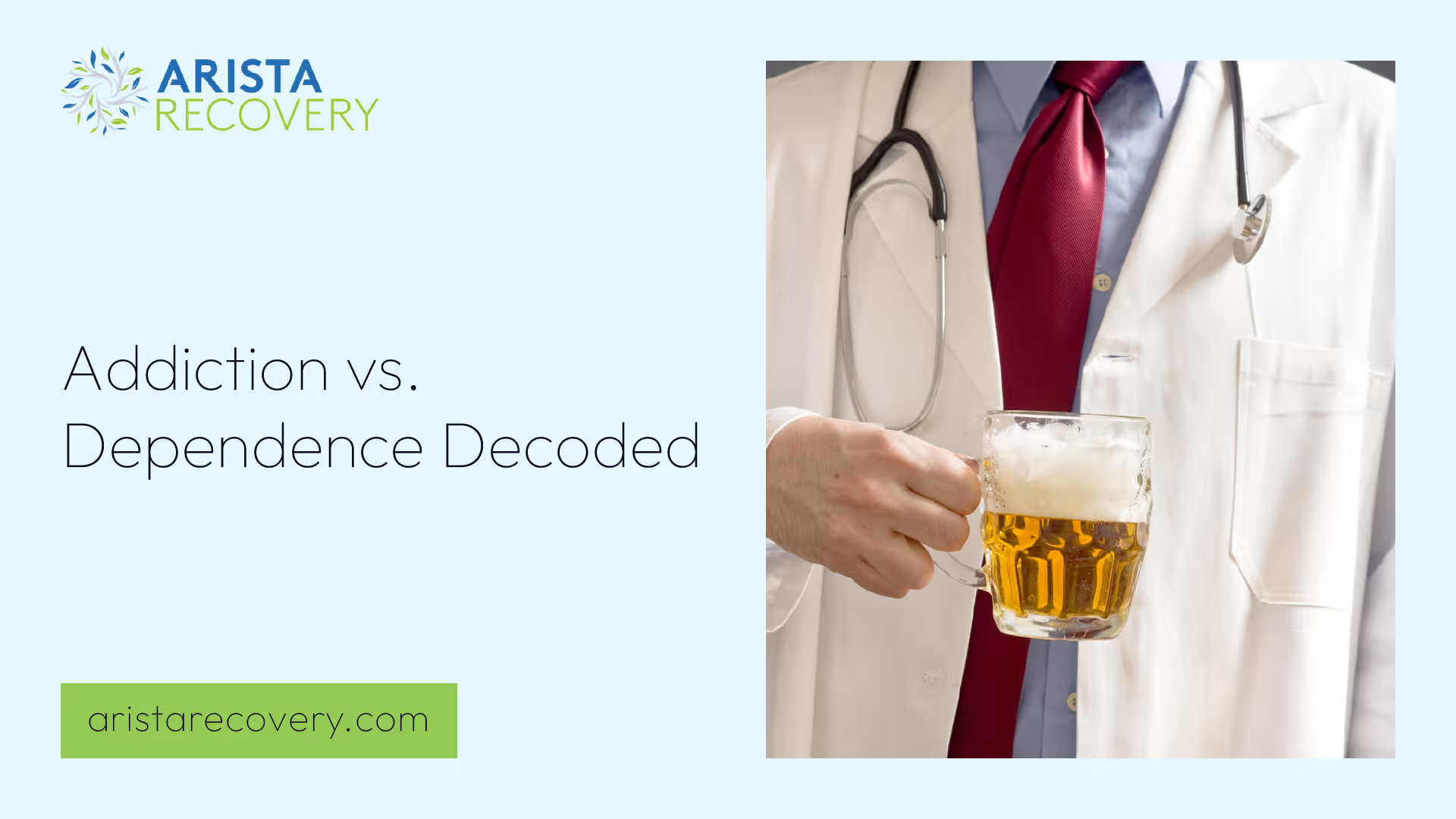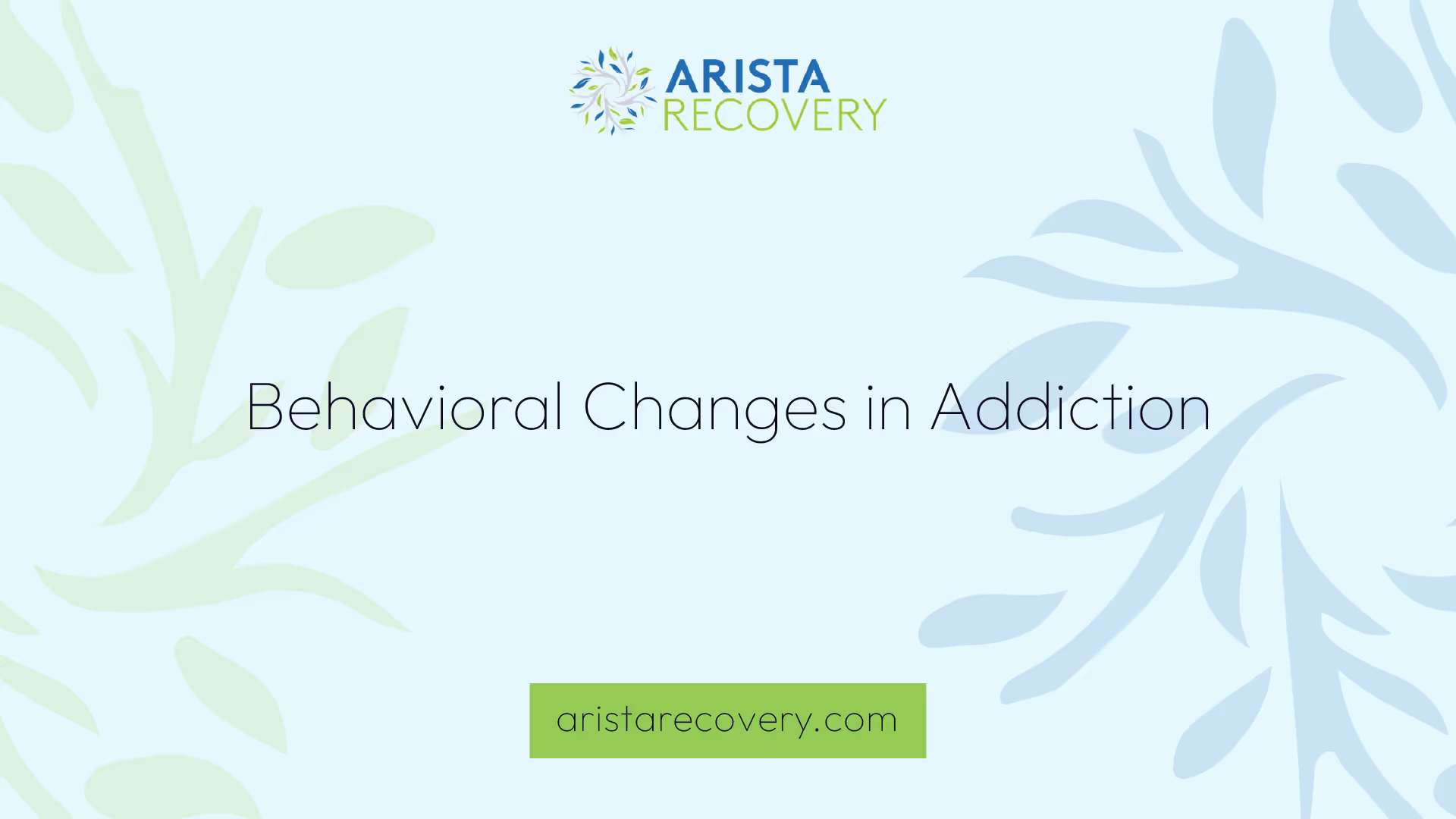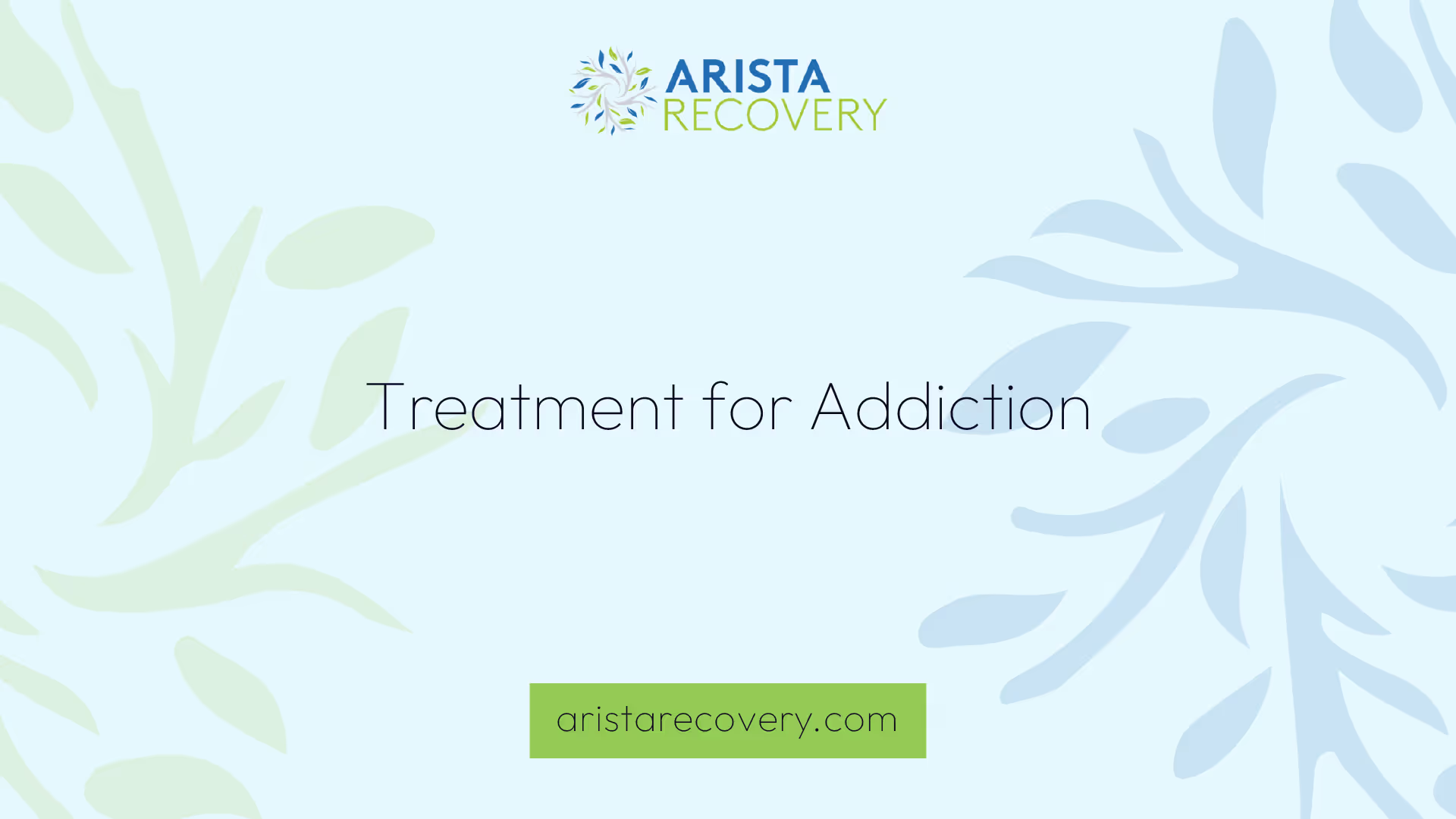Addiction vs. Dependence Decoded


Understanding Addiction
Addiction is a complex issue that affects millions of people worldwide. To break the cycle of addiction, it's crucial to first understand what it is and how it impacts the brain.
Definition of Addiction
Addiction is defined as a chronic disease that changes the reward centers in the brain, often associated with substance abuse. It alters how dopamine and other neurotransmitters related to the reward system are managed in the brain. This alteration is often linked to drugs or alcohol, which can hijack the pleasure/reward circuits in the brain, leading to a cycle of wanting more and more of the substance. Moreover, addiction can also heighten emotional responses, making individuals feel anxious and stressed when not using the substance, which can lead to continued use to avoid negative feelings.
Impact on Brain Chemistry
The impact of addiction on brain chemistry is profound. Addictive substances can cause the brain to produce much larger surges of dopamine than natural rewards. This reinforcement can lead the brain to prioritize seeking drugs over other healthier goals and activities [3].
Furthermore, addiction is marked by compulsive drug use that can alter important brain areas necessary for life-sustaining functions. Brain areas affected by drug use include those responsible for reward, memory, learning, decision-making, and self-control. The brain of a person who misuses drugs adjusts by producing fewer neurotransmitters in the reward circuit or by reducing the number of receptors that can receive signals, leading to a reduced ability to experience pleasure from naturally rewarding activities.
Understanding the changes that occur in the brain due to addiction is a crucial step towards developing effective treatment strategies. To learn more about substances that can lead to addiction, visit our articles on what is alcohol? and what are drugs?. For those seeking recovery, understanding the stages of change can be a helpful resource.
Types of Addictive Substances
Different substances can lead to addiction, each having unique characteristics, effects, and dangers. In this section, we will discuss three common types of addictive substances: alcohol, opioids, and heroin.
Alcohol Abuse
Alcohol is a legal intoxicating substance in the United States, and it's often socially accepted and widely used. However, it's crucial to understand that alcohol can lead to addiction and dependence, affecting millions of adults. According to American Addiction Centers, about 17 million adults aged 18 and older struggle with alcohol use disorder or alcoholism. This disorder is characterized by an inability to control or stop drinking despite negative consequences, leading to severe impacts on a person's life. Discover more about alcohol, its effects, and ways to detoxify your liver from alcohol in our articles on what is alcohol? and how to cleanse & detox your liver from alcohol.
Opioid Addiction
Opioid addiction has reached epidemic proportions in the United States, leading to thousands of deaths across the country. Many individuals turn to potent substances like heroin, fentanyl, or other opioids when they can no longer access prescription opiates. This transition often occurs because these illicit drugs are cheaper and more readily available than prescription medications. The misuse of opioids, whether prescribed or illicit, can have severe health implications and lead to fatal overdoses. For more information about opioids and their effects, refer to our article on what are drugs? [1].
Heroin Abuse
Heroin, a Schedule I drug, is one of the most potent and dangerous opioids. Heroin is typically injected into a vein and has a rapid onset, with pleasurable effects that do not last long. Signs of heroin abuse can include various manifestations similar to those of prescription opioid abuse, such as drowsiness, mental fog, and physical dependence. Like other opioids, heroin abuse can lead to fatal overdoses and severe health complications. It's crucial to be aware of these dangers and seek help immediately if you or a loved one is struggling with heroin addiction [1].
In conclusion, it's essential to understand that addiction to any substance, whether alcohol, opioids, or heroin, is a serious condition that requires professional help. Recognizing the signs of addiction and seeking treatment early can significantly improve the chances of recovery. For more information on overcoming addiction, check out our article on the stages of change.

Behavioral Changes in Addiction
When we delve into the topic of addiction, it is crucial to understand the significant behavioral changes that occur. These changes, driven by biochemical alterations in the brain, manifest as compulsive drug use and have a profound impact on specific brain areas.
Compulsive Drug Use
Addiction is marked by a change in behavior caused by the biochemical changes in the brain after continued substance abuse [4]. This change in behavior emerges as compulsive drug use, even in the face of harmful consequences. In this stage, substance use becomes the main priority of the individual, regardless of the harm they may cause to themselves or others.
The brain of a person who misuses drugs adjusts to the high levels of dopamine produced by drugs by producing fewer neurotransmitters in the reward circuit or by reducing the number of receptors that can receive signals [3]. As a result, the individual's ability to experience pleasure from naturally rewarding activities is reduced.
This reduction in pleasure can lead to the person feeling flat, unmotivated, lifeless, and depressed, with an inability to enjoy previously pleasurable activities. As a result, the person may feel the need to keep taking drugs to experience even a normal level of reward, creating a vicious cycle.
Effect on Brain Areas
Addiction can also alter important brain areas necessary for life-sustaining functions, such as those responsible for reward, memory, learning, decision-making, and self-control [3].
The excessive dopamine surge caused by drugs reinforces the connection between drug consumption, pleasure, and external cues linked to the experience. This reinforcement can lead the brain to prioritize seeking drugs over other healthier goals and activities.
Understanding these behavioral changes in addiction provides a foundation to differentiate between addiction vs. dependence, a topic often clouded by misconceptions and stigma. This knowledge is also crucial when considering treatment options and prevention strategies. For more information on the various stages of change in overcoming addiction, consult our guide on stages of change.
Addiction vs. Dependence
The terms "addiction" and "dependence" are often used interchangeably in common parlance, however, they represent two distinct aspects of substance use disorders. Recognizing the difference between addiction and substance dependence can help better understand the nature of addiction and aid in achieving recovery [4].
Differentiating Factors
Addiction and physical dependence are not the same thing.
Misconceptions and Stigma
The conflation of addiction with dependence can lead to stigma against effective medication treatment for opioid use disorder. This stigma is even enshrined in law, impacting child abuse reporting for newborns exposed to methadone or buprenorphine and leading to legal jeopardy for doctors treating patients with chronic pain on long-term opioid therapy.
In an effort to rectify this, the American Psychiatric Association recognized the need to stop conflating addiction and dependence in the DSM-5 in 2013. The diagnostic term for addiction in the DSM-5 is now "opioid use disorder, moderate to severe," replacing the term "opioid abuse" with "opioid use disorder, mild." This change is crucial for diagnostic accuracy and to reduce punitive treatment of patients [5].
Understanding the difference between addiction and dependence is a critical step to reducing the stigma associated with substance use disorders and improving the effectiveness of treatments. For more information on the nature of addiction, visit what are drugs?. For strategies on overcoming addiction, check out the stages of change.

Treatment for Addiction
Addressing addiction involves a comprehensive approach that includes diagnosis, evaluation, and a variety of treatment options. It's essential to understand that 'addiction vs. dependence' are distinct conditions, and their treatment protocols differ accordingly.
Diagnosis and Evaluation
Diagnosing drug addiction, also known as substance use disorder, requires a thorough evaluation. This often includes an assessment by a psychiatrist, a psychologist, or a licensed alcohol and drug counselor. While blood, urine, or other lab tests are used to assess drug use, they are not diagnostic tests for addiction.
For the diagnosis of a substance use disorder, most mental health professionals use the criteria in the Diagnostic and Statistical Manual of Mental Disorders (DSM-5), published by the American Psychiatric Association. This manual provides standardized criteria to help professionals diagnose and treat various mental health conditions, including substance use disorders.
Treatment Options
Treatment for substance use disorders typically involves a multifaceted approach. Programs often offer withdrawal therapy, behavior therapy, self-help groups, medication as part of treatment, and ongoing treatment to prevent relapse [6].
Self-help support groups, such as Narcotics Anonymous, play a crucial role in helping individuals who are battling drug addiction. These groups reinforce that addiction is an ongoing disorder with a high risk of relapse, emphasizing the need for continuous support and vigilance.
Medications for Addiction Treatment (MAT) can be beneficial for individuals with a physical dependency on certain substances, including alcohol, nicotine, and opioids. These medications are most effective when used in combination with counseling and other treatment services.
It's important to note that treatment should be tailored to the individual's needs, taking into account their specific substance use patterns and co-occurring medical, mental, and social problems. To learn more about the impact of specific substances on health, you can read our articles on marijuana and anesthesia, alcohol and naproxen, and how to cleanse & detox your liver from alcohol. For those in recovery, understanding the stages of change can be a valuable tool in the journey towards overcoming addiction.
Preventing and Overcoming Addiction
Prevention and recovery are two critical components in the fight against addiction. Understanding effective strategies to prevent addiction and providing support for recovery can make a significant difference in the lives of individuals struggling with this issue.
Prevention Strategies
Preventing addiction begins with understanding its nature. Addiction is a long-lasting and complex brain disease that leads individuals to crave and seek out substances such as drugs or alcohol, even at the risk of damaging relationships, losing jobs, or hurting family members [2]. The brain changes with addiction, making it challenging for individuals to quit.
Substances such as alcohol can cause the brain to produce large surges of dopamine, reinforcing the connection between drug consumption, pleasure, and external cues linked to the experience [3]. This reinforcement can lead the brain to prioritize seeking drugs over other healthier goals and activities.
Therefore, prevention strategies should include education about the nature of addiction and the risks associated with drug and alcohol use. Additionally, strategies could also involve promoting healthy alternatives to drug and alcohol use, as well as providing support and resources for individuals at risk.
Recovery and Support
Recovery from addiction is about more than just refraining from use. It involves improving one's quality of life, being emotionally and physically healthy, succeeding in school or work, having healthy relationships, and leading a healthy social life.
Recovery often requires support and services after the initial treatment plan is complete. This might include therapy, counseling, support groups, medication, and other services. Support from family and friends is also crucial, as they can provide emotional support, encouragement, and motivation.
Recognizing the difference between addiction and dependence can help to better understand the nature of addiction. Understanding the distinction between addiction and dependence can also be a valuable tool in achieving recovery [4].
For more information on stages of change and the process of recovery, visit our article on stages of change. It's also important to note that recovery is an ongoing process, and relapse is a common part of this journey. However, with the right support and resources, overcoming addiction is possible.
If you or someone you know is struggling with addiction, seeking professional help can provide the necessary tools and support to navigate the path to recovery. Please reach out to a healthcare provider or a local support group to start this journey. Remember, you are not alone, and help is available.
References
[1]: https://americanaddictioncenters.org/adult-addiction-treatment-programs/signs
[2]: https://newsinhealth.nih.gov/2015/10/biology-addiction
[3]: https://nida.nih.gov/publications/drugs-brains-behavior-science-addiction/drugs-brain
[4]: https://www.addictioncenter.com/addiction/addiction-vs-dependence/
[5]: https://www.ncbi.nlm.nih.gov/pmc/articles/PMC8583742/
[6]: https://www.mayoclinic.org/diseases-conditions/drug-addiction/diagnosis-treatment/drc-20365113
[7]: https://drugfree.org/article/types-of-addiction-treatment/
You’re not alone in this.
When mental health challenges and addiction intersect, it can feel isolating. At Arista, we offer compassionate, evidence-based, and trauma-informed care to help you heal, grow, and move forward.
You’re not alone in this.
When mental health challenges and addiction intersect, it can feel isolating. At Arista, we offer compassionate, evidence-based, and trauma-informed care to help you heal, grow, and move forward.
Support that moves with you.
You’ve taken a brave first step. At Arista Recovery, we’re here to help you continue with best-in-class care designed for long-term healing and support.
.webp)






